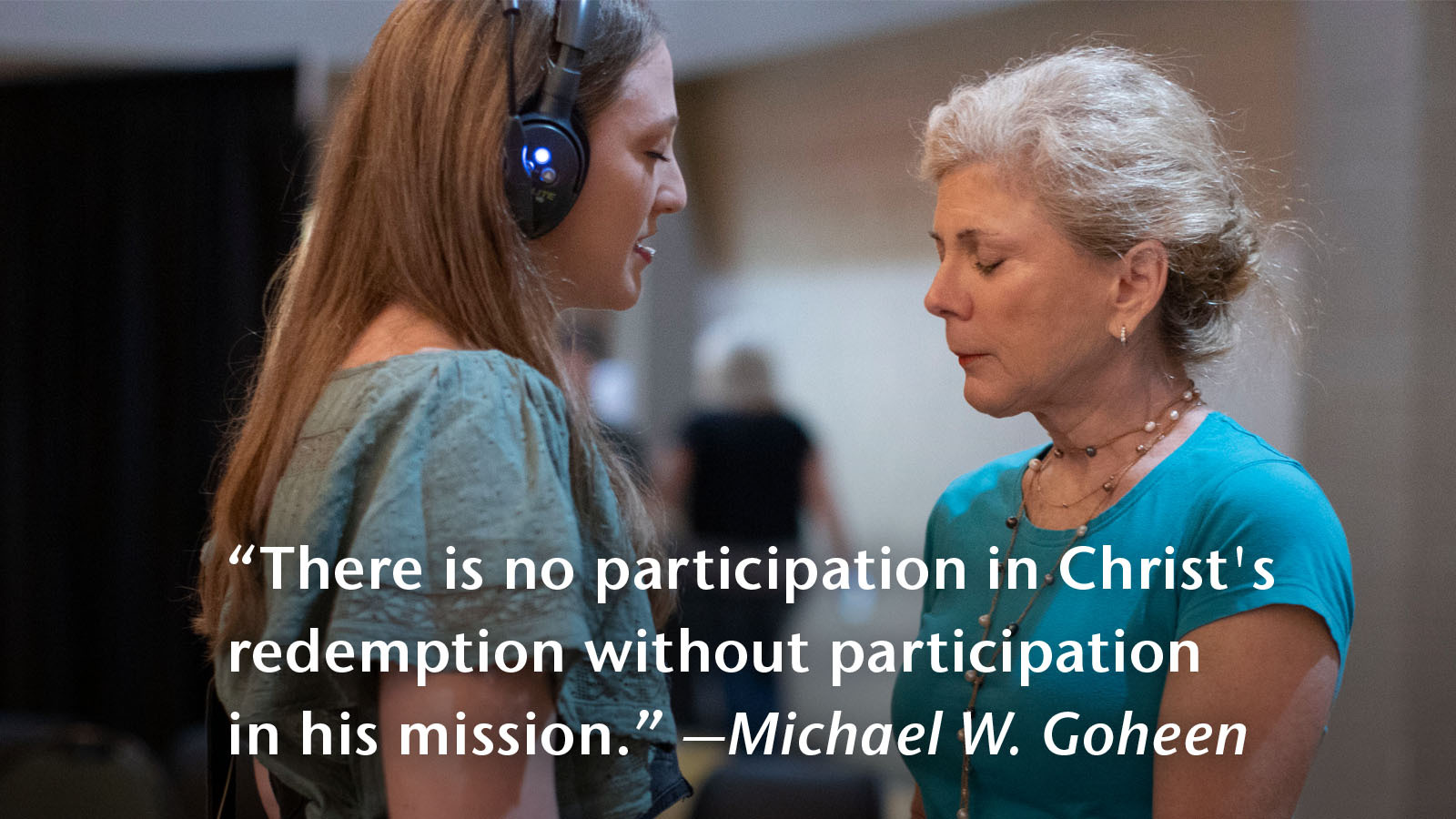Article
Seeing the Kingdom in Cross-Class Friendships
by The Rev. Dr. R. Leigh Spruill

Following a hiatus over the summer, I resume sharing this bi-monthly journal on the mission of the church. My goal is to share reflections and ask questions about creative new opportunities God may be placing before our parish community to serve our city as beacons of gospel light. How do these present times and this section of the world called Houston where God has placed us shape our vision for St. John the Divine’s future? As I have shared many times, I am convinced that faithful and growing churches in our post-Christian, highly fraught era will be those that embrace mission as central to their very reason for being.
Last month a friend passed along to me an article that has had me thinking and reading more on the topic ever since. The piece is from NPR and is entitled “Why the American Dream is More Attainable in Some Cities than Others.” It is based on a recent research project that studies rates of upward socioeconomic mobility. Read the full article here.
Led by Harvard economist Raj Chetty, the question at the heart of the study is what cultural influences cause some places to be much more alive to upward mobility than other places. For example, why is it that those with low socioeconomic status in some communities are more likely to significantly raise their status than those in other communities? The short answer is social capital.
What is social capital? It is a term that is much used these days in both cultural commentary and religious writings. Social capital refers to the value and influence of our relationships within families, friends, networks, organizations (such as churches), and the broader community or city. Not surprisingly, those who have greater and deeper relationships have greater success moving up the socioeconomic ladder. Yet the revealing finding from the study is that the most influential kinds of relationships for upward mobility are cross-class friendships. “It’s exactly in the places where low-income people have lots of high-income friends that economic mobility is higher.”
I am grateful for powerful Spirit-led discernment over the past year by many parish leaders, including our ongoing and exciting momentum with the Community Engagement Project. Much of this discernment has been swirling around a growing sense that God is calling SJD into deeper engagements of mentoring and friendship with fellow city residents beyond our parish who are less fortunate in economic, educational, or professional opportunities. Of course, I cannot help thinking about how we are blessed with an abundance of warm, caring, and successful leaders who might join the call to this vision. And I cannot help thinking about how this study connects to that.
There are two questions specifically articulated by the study that are relevant for our ongoing discernment about how SJD can be an even brighter light for the city: 1) How often do low-income people encounter high-income people in an area? 2) How readily does this exposure lead to genuine friendships between low-income and high-income people? The good news is that “in churches, mosques, and synagogues … it actually seems … that low-income folks tend to form friendships with high-income folks at a really high rate.”
Of course, Jesus calls the church to be more than an agent of upward socioeconomic mobility for others. His mission is nothing less than the ushering in of the Kingdom of God and salvation through faith in him. But we know too that Jesus calls us to nothing less than total commitment to the love of our neighbor. Again, I cannot help mulling over—and with energy!—the implications of this study on how we prayerfully consider that commitment moving into the future and moving into our city. I invite you to do so as well and would love to hear your own thoughts.

Wisdom for the Week
"There is no participation in Christ's redemption without participation in his mission. The mission of God is one of sending. The Father sends the Son to make known the kingdom of God in the power of the Spirit. The Son sends the Spirit to continue his work of renewal. The Son also sends the church to continue his mission in the power of the same Spirit. This sending defines not one task of the church, but its very nature and being."
— Michael W. Goheen, “As the Father Has Sent Me, I Am Sending You,” International Review of Mission (July 2002 issue)
One Good Recommendation
I have noticed that quite a few of us at SJD are reading—or rereading—Dallas Willard’s modern “classic” Renovation of the Heart: Putting on the Character of Christ. I sense that the book's current popularity results from the effective marketing of this year's release of a new 20th-anniversary edition. I am delighted. Susalee and I are currently reading it together in our morning devotional time and find ourselves talking about it at other times in the day. I would rank this work in my personal “Top Ten” books on what becoming a Christian involves. I cannot recommend it highly enough.